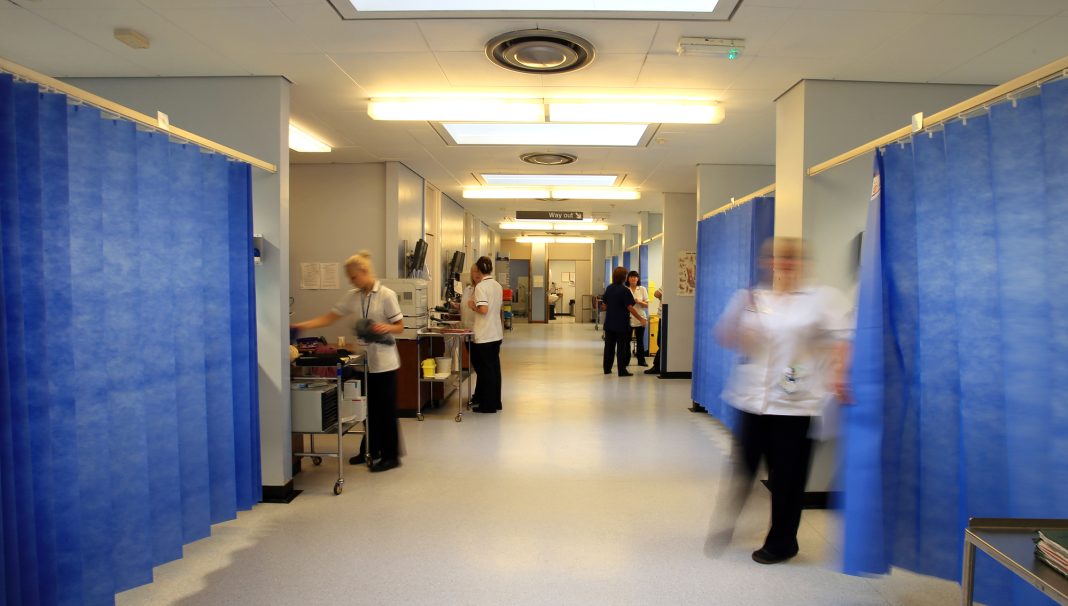If seven-day working goes ahead, the public could see a “better experience” from the health services by June, but unions have questioned the practicalities of the proposed plans.
As outlined by HSE chief executive Bernard Gloster, the change is not just for patients on wards. It could lead to longer hours for out-patient clinics and some community care.
People could go for cardiology and gynecology check-ups or take children to routine clinics at weekends so they do not miss school.
It could see an end to elderly hospital patients told on Fridays “your treatment is finished but you can’t go home till Monday”, as supports in the community would now be open.
Mr Gloster spoke to the Irish Medical Organisation (IMO) AGM about seven-day working as it took place last Saturday in Killarney.
“What I’m talking about is the totality of the healthcare workforce being better distributed across the seven days of the week,” he said:
My plan is by the end of June to arrive at a point where we will start to see the implementation of a stabilised roster across every weekend.
Mr Gloster told each of the HSE regions he expected “up to 10%” of staff working weekends.
They have recruited 25% more staff over the last five years, he added.
He added “a lot of people work very hard at the weekends” but he wanted to see more regular out-patient work as well as emergency care.
This would, he explained, see consultants’ clinics — with clerical staff, therapists, nurses and diagnostic staff offering scans — run on Saturdays.
“And there’s no reason why people leaving hospital can’t have access to community supports at the weekends,” he said.
In fact, it’s been raised with me in the past two weeks that there’s a need also to ensure that psychiatrists who are on the public-only consultant contract have a rostered profile across the seven days.
“Even though we have a shortage of psychiatrists, that doesn’t mean we can’t distribute the workforce better.”
He added: “Certainly, all of the indicators are that we will get a better experience for the public out of that.”
Health minister Jennifer Carroll MacNeill has focused on having extra consultants on duty to reduce numbers of patients waiting on trolleys for hospital beds.
She said overcrowding in February “was too great to remain unresolved”.
However, the switch is not as straightforward as Mr Gloster and the minister paint it.
Almost 149,000 people worked full-time or part-time for the HSE by February.
Nurses and midwives made up 48,363, and most already work across seven days, as do some smaller groups of staff.
Staff will face weekend challenges of childcare or public transport, along with the mental shift to seeing Saturday or Sunday as just another day.
Could we see creches opening weekends or more buses running in areas with large hospitals like Cork or Tralee?
Dr Matthew Sadlier, head of the IMO consultants’ committee, said: “You’re talking about a fundamental reset of in-patient hospital care.”
Doctor shortages are a barrier to extending their hours past the weekend on-call system in place now, he argued.
He warned anyone working a 10-hour shift on Saturday under the current proposals would then take a weekday off.
It could mean different doctors covering clinics each month, which disrupts patients’ continuity of care.
Other consultants highlighted challenges for smaller hospitals, saying they do not have enough doctors to meet five days of demand.
Incoming president Dr Anne Dee called instead for urgent investment, saying: “We have 5,000 fewer hospital beds than our population requires and a below-average ratio of consultants per head of population.”
Many people rely on weekend premium payments for mortgages or did not sign up for weekend work.
Forsa national secretary Linda Kelly warned there was “definitely a mismatch in terms of planning for services, and what the HSE is saying publicly”.
Last-minute talks in March averted industrial action on staffing numbers by about 80,000 workers with the Irish Nurses and Midwives Organisation, Fórsa, Connect, Unite, and the Medical Laboratory Scientists Association.
Unions will be very aware of the level of discontent. Moves to ask people to work differently will be likely assessed in that light.
By: Doctors raise concerns about HSE plan to roster seven-day working week







